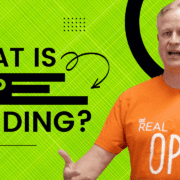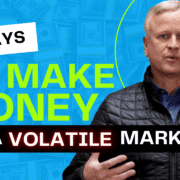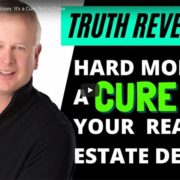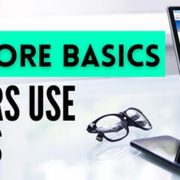3 Must-Know Answers to Finding Undermarket Properties
A real estate investor’s intro to wholesalers.
At the end of the day, successful real estate investing hinges on one thing: finding good deals on properties.
The #1 way to get those deals is through wholesalers. But how do you find wholesalers? And what should you do next?
What Are Wholesalers?
Wholesalers are companies that research and locate below-market-value properties. They find homeowners – through mailers, texting, or other means of marketing – that are willing to sell undermarket.
Wholesalers keep some of the properties they acquire, but they sell many of them off to real estate investors. That’s where you come in.
You can, and should, make wholesalers a profitable member of your investment team. Let’s talk about:
- How to find wholesalers
- How to get on their “A-list”
- How to verify their numbers
1. Where Do You Find Wholesalers?
There are some really small wholesalers that find one or two properties a month. Others are huge companies that spend hundreds of thousands of dollars per month, finding hundreds of homes every year.
Generally, the only way to find wholesalers is to ask around about who is selling properties in your area. Here are three ways to do this:
- Search Google. Simple: look up “I want a house in” and your city name. You’ll get lists of people wanting to buy houses. These are the same people who will be selling them to investors.
- Use biggerpockets.com. Your best resource is other real estate investors. Log on and ask who the wholesalers for your area are.
- Join local Facebook groups. You can ask other investors who the wholesalers are. Or, you can look and see what people and organizations are trying to buy cheap properties. Those will likely be wholesalers.
Other investors are a good resource for finding wholesalers, but of course, they’re also your competition. Once you find wholesalers, your next step will be to find a way onto their A-list.
2. How Do I Get to the Top of a Wholesaler’s Preferred Buyer List?
Before they send out a property to their whole group, wholesalers will send it to their best buyers first. They will want to get rid of it as quickly and efficiently as possible. If they can sell it without having to coordinate property tours and indecisive buyers, they will.
So, how do you get on that list?
- Know exactly what you want. Don’t show up uncertain. Come with either cash in-hand or a hard money lender. They will want a smooth, no-drama process.
- Find lenders they work with. This way, the wholesaler will be confident that the deal will close, close fast, and close with no issues.
- Close the deal. If you get under contract with them, follow through with the deal, and do it as fast as possible. Don’t get into a contract unless you know it’s what you want.
In general, you’ll want to cause the least amount of friction possible. After all, you probably feel the same way: the people who make things easy and enjoyable are the people you’ll want to work with over and over again.
3. How Do I Know If I’m Getting a Good Deal with a Wholesaler?
You and the wholesaler will have different motivations in the deal. They need to make money, so they may be “optimistic” with the numbers they tell you. To protect your interests, you’ll have to be proactive and realistic.
Double check their numbers. This includes:
- The current condition of the property
- The cost of repairs to bring it to market
- How long it will take to get to market
It’s also important that you go in knowing your numbers. It will make verifying their numbers a lot easier, and it makes the process smoother for them (see #2 of this list).
If you’re not sure how to plan these financials for a deal, have a friend or a contractor help you get an estimate.
The Wholesaler and Investor Relationship
A wholesaler will be a valuable member of your real estate investment team. Do everything you can to stay on their good side, but also be prepared to advocate for yourself in every potential deal.
If you need extra help with evaluating cash flow for a property, download our free loan optimizer at this link, or check out this video series on our YouTube channel.










